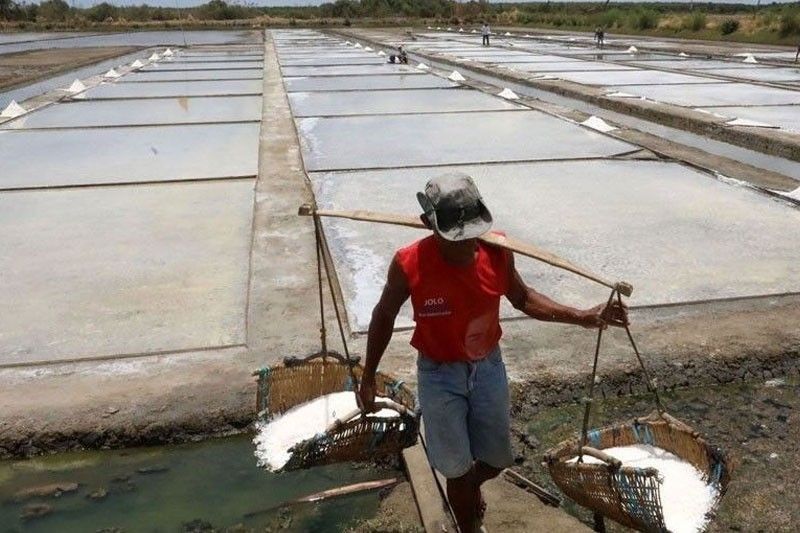‘Review FTAs to make higher salt tariff effective’

MANILA, Philippines — The government should review some of its free trade agreements (FTAs) to ensure that the higher salt tariff rate would make an impact on the lives of local salt farmers, stakeholders said.
Philippine Chamber of Agriculture and Food Inc. president Danilo Fausto pointed out that the increase in salt tariff to nine percent from one percent would not make significant impact on the domestic industry since most of the imported supplies enter the country tariff-free under FTAs.
“There is a need to review tariff agreements if we are serious in developing the affected industries. Or else, laws that were passed giving support to industries will be useless,” Fausto told The STAR.
The STAR earlier reported that the government has started to impose higher tariff rate on imported salt pursuant to Republic Act 11985 or the Philippine Salt Industry Development Act.
Under the law, tariffs collected from imported salt products would be earmarked for the development of the local salt industry for the next 10 years.
However, experts cautioned that salt tariff collections would remain meager since most of the imported salt products are covered by FTAs, thus, entering the country tariff-free.
Marie Annette Dacul, executive director of University of Asia and the Pacific’s Center for Food and Agri Business, said the challenge for the government is to identify “alternative” approaches to “strengthen” the local salt industry to reduce reliance on tariff collections.
“The (nine percent) tariff is expected to have a limited impact, as most of the Philippines’ salt imports are from countries with FTAs that would not be affected,” Dacul said.
“Still, any tariff is better than a zero tariff, as it has the potential to yield some revenue,” she added.
Philippine Statistics Authority data showed that the top four salt exporters to the Philippines – Australia, China, Thailand and New Zealand – are all covered by FTAs.
For example, Australia, the country’s top foreign supplier, shipped $27.592 million of salt to the Philippines last year, all of which entered the country tariff-free.
Australia accounted for at least three-fourths of the $36.571-million total value of salt products imported by the country, based on PSA data.
Customs records showed that only P240.845 million out of the total P2.456 billion worth of salt imports last year were slapped with tariffs.
From the P240.845 million, the BOC only collected P2.43 million worth of salt tariffs.
- Latest
- Trending






























